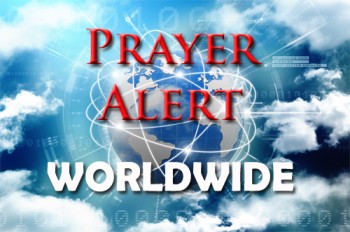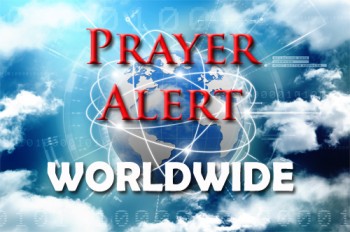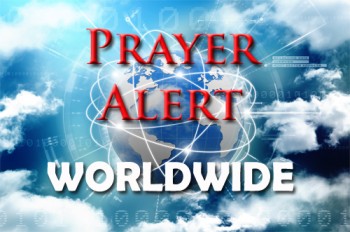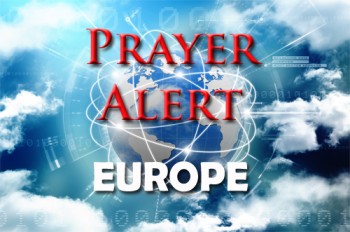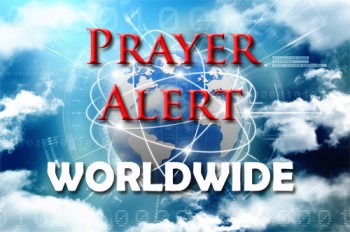Displaying items by tag: Asia
Christian witness after Japan's disaster
The 2011 earthquake prompted new mission awareness in Japan’s churches. Churches reconsidered how to evangelise and develop the church. In northern Japan, people who previously showed no interest in the gospel became receptive and drawn to Christianity after seeing Christ in volunteers who, without demanding anything in return, kept coming to provide aid and support. By 2017 Christians had begun to be called Kirisuto-san or ‘Mr/Ms Christ’, with respect and appreciation. Over time, people asked about the Bible, and doors opened for sharing testimonies. Operation World reports that Japanese missionaries are increasing, in Japanese and English. The Overseas Missions Association has a membership of over twenty agencies. YWAM Tokyo started ten years ago, with a handful of amazing people. Now they have forty staff, and outreaches all over the city. They need your prayers! See http://www.operationworld.org/country/japa/owtext.html
God at work despite restrictions
Over 200 female Muslim refugees gathered in a highly restrictive Middle East country, where Hana, a Christian, addressed them. Four officers sat in the front row, watching her. ‘I had to be very careful,’ she said. ‘We had called this meeting without a permit.’ She said to her audience, ‘I know how devoted you are to Islam, how much you respect and love God, how honest you are in your worship. You fast and pray so faithfully. But on the other hand I feel sorry for you because you can never be sure of your salvation. You can never know if your destiny is heaven or hell.’ Then Hana boldly asked the officers, ‘Would you please leave the room? I need to speak to these women in private.’ The officers complied. God poured out His Spirit on the women. Hana recounted, ‘I asked those who wanted to follow Jesus to stand and pray. They all did, the entire group, every one of them!’ For the full story, click the ‘More’ button.
Syria: Iranian missile factory
Iran has built a new precision missile factory in the outskirts of Latakia, a port city in Syria near the Russian air force base. The Syrian government and Hezbollah reportedly assisted Iran in constructing the factory. Missile parts were ordered from Italy, China, and other Asian countries, through companies established by Syria’s scientific research centre. Meanwhile, Iran’s official news agency reported a new ballistic missile with a range of 1,000 kilometres to celebrate the 40th anniversary of the Islamic Revolution. In September 2018 Israel Defence Forces issued a rare statement confirming they struck a Syrian military facility near Latakia ‘from which systems to manufacture accurate and lethal weapons were about to be transferred on behalf of Iran to Hezbollah in Lebanon’.
Iran forty years on
11 February marked the 40th anniversary of Iran’s revolution, ending a 2,500-year monarchy and creating the world’s first Islamic republic - now a complex and contradictory regime. Iran is a democracy trapped inside a theocracy - holding genuinely competitive elections, but candidates are selected by unelected clerics and lawyers. Large public demonstrations are common. Iranian women protest in the streets and online against strict female dress. Moderate president Hassan Rouhani has had his reforms undermined by the Supreme Leader. With President Trump re-imposing US sanctions, recession looms and inflation rises. An anti-West stance remains an essential element of Iran’s politics. Public frustration over economic hardship; a Supreme Leader aged 79; and uncertainty over succession. How strong is this republic?
Malaysia: Open Doors urges action
In 2017 Pastor Raymond Koh was abducted in a professional attack caught on CCTV. He has not been seen since. Open Doors has urged the government to throw its weight behind locating him and three others who disappeared around the same time. They said, ‘The facts of this case are utterly outrageous. We urge the new government to expose the truth behind these abductions, and root out the corruption which allegedly led to their disappearance.’ A whistle-blower said Raymond had been targeted for having a minority faith, and his abduction was carried out with the approval of the then inspector general of police. A human rights commission investigation into his disappearance ended in December 2018, with a response expected in March 2019.
Myanmar: kidnapped pastor could be dead
On 19 January, in Myanmar, Pastor Tun was kidnapped with several others and held captive by a group of Buddhist militants. He is believed to be dead, but Barnabas’ contacts in the region say that his body has not yet been found. Pastor Tun was a spokesman for his village, and his missionary work made him a target by the ‘truly brutal’ group. Concerns are mounting that more abductions of Christians are likely.
France: jihadists from Syria
The US decision to remove 2,000 troops from Syria worries France, which has 200 special forces in areas wrested from IS by the Syrian Democratic Forces (SDF). US forces ferried supplies to French commandos, and helped evacuate French wounded. But the great dilemma is what to do with the 130 French jihadists held by the SDF (along with 770 from other countries). The SDF complains of the burden of guarding so many foreign jihadists, and wants France to repatriate its 130 nationals. The numbers could swell. Another 250 French jihadists are held in Iraq. Many of the detainees are women and children deeply implicated in terrorism. The French prison systems cannot cope with a massive influx of returning jihadists. And if they are tried, it could be difficult to find evidence against them. There are already 150 returnees in the prisons, with thirty due to be freed this year. French intelligence has repeatedly been unable to prevent terrorists on watchlists from staging attacks.
UAE: signs of religious freedom?
An estimated 180,000 people attended mass with the Pope in Abu Dhabi, the capital of the United Arab Emirates, close to the birthplace of Islam. The crowds gathered to hear him just a day after he called on Christians and Muslim leaders to work together in the rejection of war. He spoke about how Christians should live, pointing out that Jesus came to serve and not be served. He went on to say Jesus lived in poverty in respect to things, but displayed wealth in love. He healed so many lives, but did not spare his own. In his speech to an audience consisting of Abu Dhabi's crown prince, hundreds of imams, muftis, ministers, and rabbis, the Pope warned that the future of humanity was at stake unless religions come together to resist the ‘logic of armed power.’ ‘We will either build the future together, or there will not be a future. God is with those who seek peace.’
Aasia Bibi allowed to leave Pakistan
Death row Christian Aasia Bibi will be allowed to leave Pakistan, after the country's top court upheld her acquittal on blasphemy charges. Ms Bibi, who spent eight years on death row, will now be free to join her daughters who fled to Canada and were granted asylum there. The 54-year-old was acquitted in October (eight years after she was convicted for allegedly insulting the Prophet Muhammad in a dispute with her neighbours); but she has remained under guard at a secret place since her acquittal. Prime Minister Imran Khan's government has attempted to quell anger over her exoneration by radical Islamists, who staged nationwide protests and almost brought the capital Islamabad to a standstill. More than 3,000 members of the radical Tehreek-i-Labbaik Pakistan (TLP) group were arrested on charges of terrorism after the protest, with its leader and high profile members still in prison.
North Korea: secret money
Lim II went to a construction site in Kuwait, where he worked day and night for five months, but was not paid. His salary was sent straight to Pyongyang. Over the years, an estimated 150,000 North Korean men and women have been recruited and sent abroad to work for the ruling Kim family. Toiling in factories and on construction sites around the world, they have generated billions of dollars for the pariah state. Reporters in a documentary met defectors who confirmed that the cash earned overseas was going directly to fund the development of the country’s nuclear missile programme. A former high-ranking official spoke of Office 39, which manages thousands of companies and factories overseas and provides half of the country's gross domestic product. ‘Our main goal was to make foreign cash, and this foreign cash business is a complete secret.’


